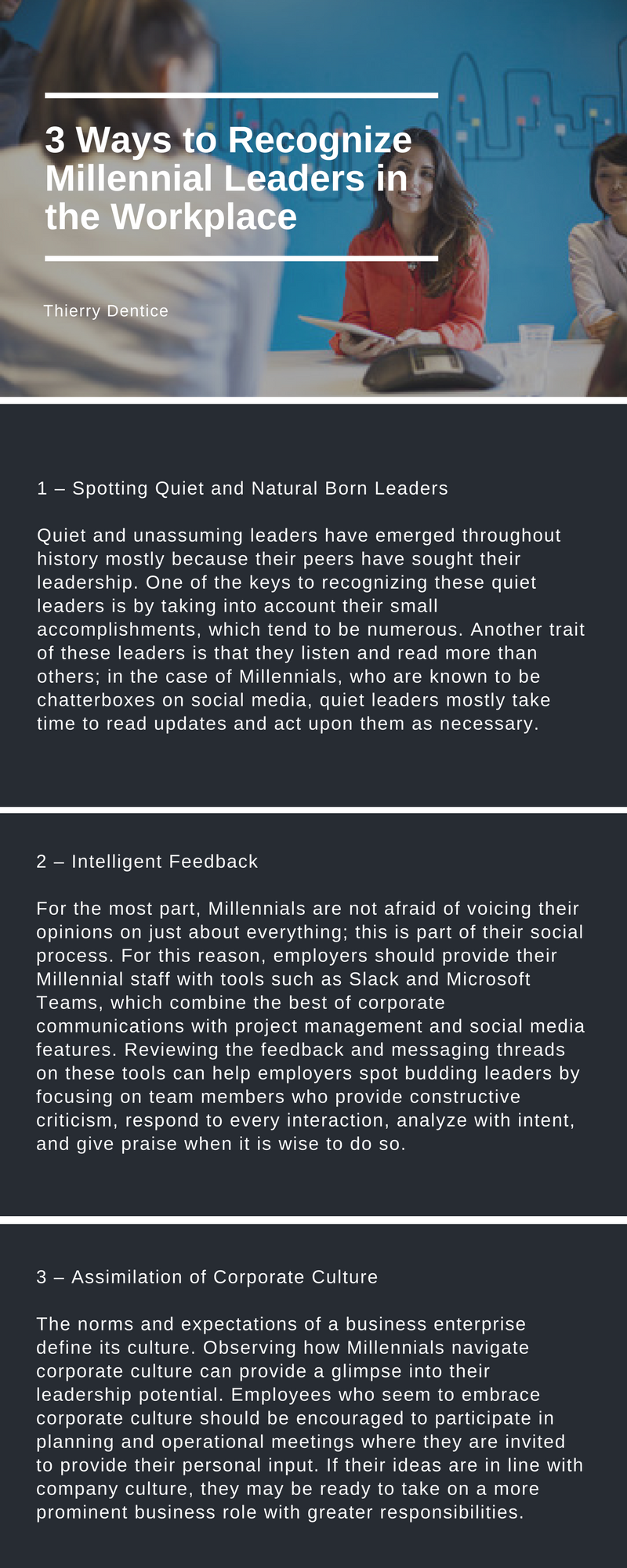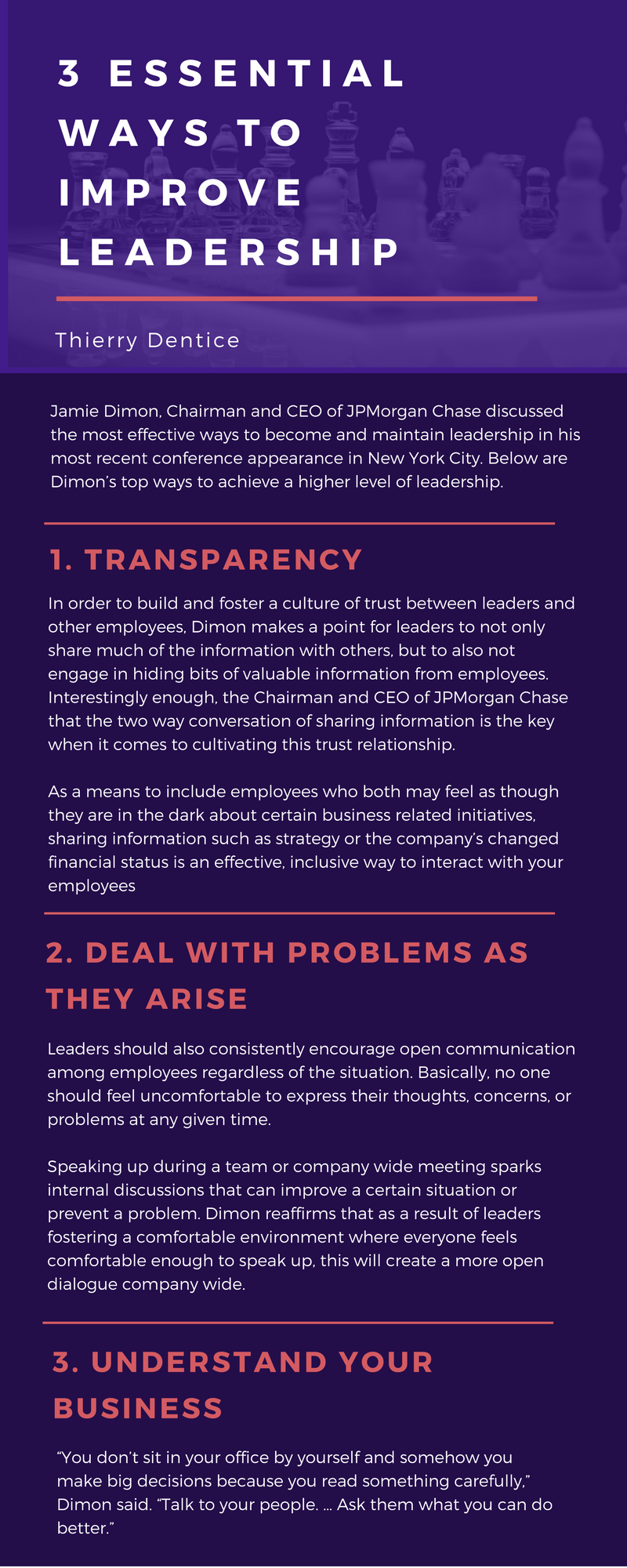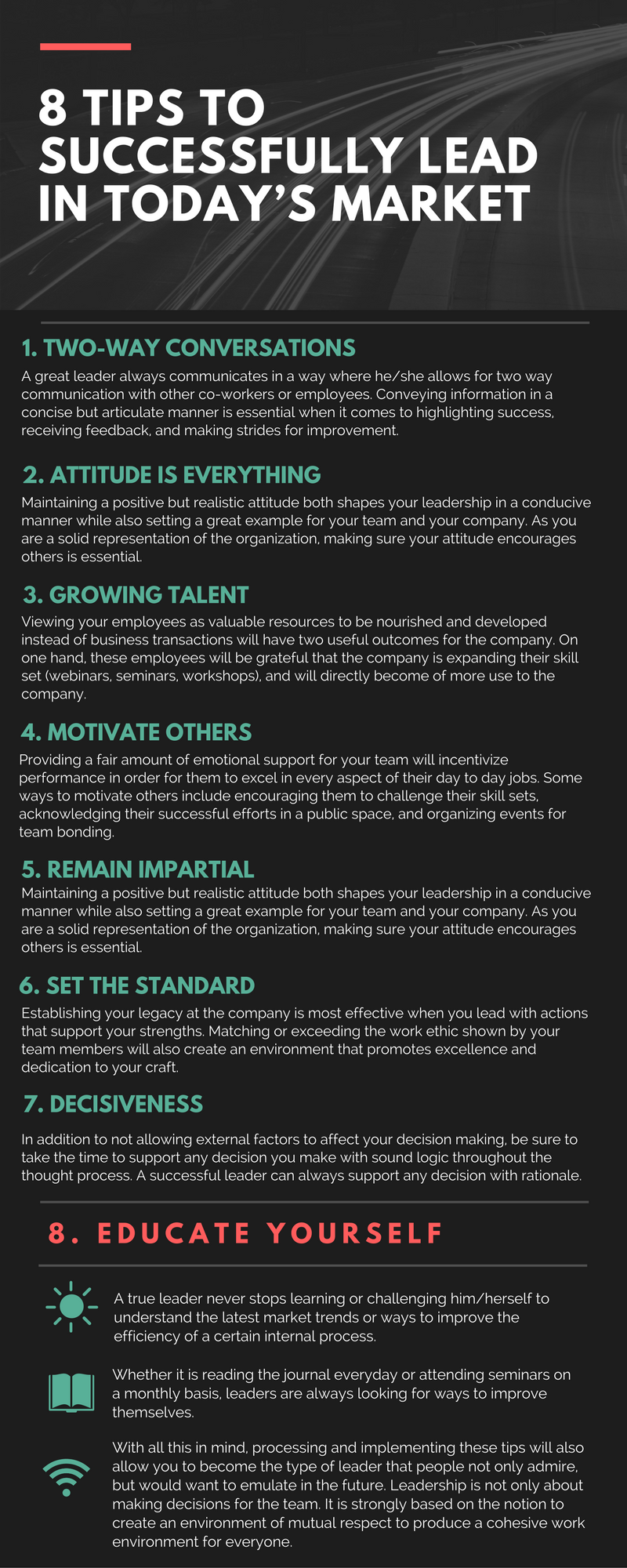Tag: emotional intelligence (page 2 of 3)
Our society has a habit of coveting and catering to the extrovert, leaving the introvert to feel less capable. But the truth is, some of the best thinkers throughout history were introverts. Introverts can be highly effective leaders. The reason introverts often feel they can’t lead is because some of the tips given for leadership don’t cater to them. Here are a few leadership tips for introverts:
1) Tell Your Team What to Expect
While introversion can be a positive quality in a leader, not all employees are used to it. It’s a good idea to let your team members know directly if you are going to do things differently than what they are used to. For example, if you don’t like having meetings as frequently as your team previously did, let your employees know that that’s how the team will be operating. Explain why you think it would be beneficial for you to spend more time on individual work. Let your employees know they can come to you with questions or concerns at any time.
2) Prepare For Meetings
Even if you intend to have fewer meetings that other leaders held, you’ll still want to have a few. If you aren’t prepared for these meetings, you can get overwhelmed and as a result communicate in a way that is not very effective. In order to make the meetings as productive as possible, get ready for the meetings before hard. Write down some thoughts or prepare an agenda. You can even create a presentation to help you stay on task.
3) Have One-on-One Meetings With Employees
If you don’t like having frequent team meetings, make sure you schedule one-on-one meetings with each member of your team. This is a beneficial way for introverted leaders to have effective communication with employees. This will allow you to get input from everyone on your team instead of just from the people who are likely to talk in meetings.
4) Listen First and Talk Second
One of the best leadership qualities associated with being an introvert is being a good listener. Too many people in the business world speak without listening, so introverts have a leg up on the competition in this regard. If you want to be viewed as a respected leader, put those listening skills to use. Actively listen to your employees, your coworkers and your clients. After processing what they have told you, provide guidance and answers that you feel will keep the company moving in the right direction.
5) Notice Your Employees’ Strengths
Chances are you’re not the only introvert on the team. You don’t want your employees to overlook your strengths, so make sure you don’t overlook the strengths of some of your employees who may be wary to socialize or share their thoughts. When you take the time to recognize the strengths of each team member, you will be more able to give them the right tasks. When you assign people the tasks they’ll do best, the company will be able to make more progress.
Being an introvert in the workplace can be tough, and it can be even more difficult when you’re in a leadership position. Don’t ever feel that your introversion makes you an incapable leader. If you follow the steps on this list, you’ll be able to lead your team to success.
Unfortunately, leadership development can sometimes be limited to only top level officials and positions, while many times this can actually create a level of stagnation for employees altogether.
The bottom line is that without a consistent training program that improves how leaders function in accordance with changing workflows, etc. Without a training program, some results can include employee satisfaction, turnover rate, and employees who simply do not want to engage further in the company.
Decreased employee engagement
A study conducted by Corporate Productivity found that half of managers across U.S. companies have to keep their best employees in their current positions (as a means to talent hoarding).
The most efficient of companies across the U.S. were more than twice as likely to prioritize the movement of talent to either different departments or moving upwards internally. On the other hand, companies with the lowest efficiency are 2.5 times more likely to prioritize other goals focused on talent movement or management.
When employees move on
Poor leaders also negatively affect talent management. The Society for Human Resource Management (SHRM) has also confirmed that solid leadership directly contributes to factors such as turnover and employee retention rate.
The lack of leadership training opportunities can cause employees to not only get bored, but also develop negative feelings towards the institution they work for. If employees don’t feel valued or believe there is an upward trajectory of job growth internally, the good employees will without a doubt find opportunities elsewhere.
Many leaders are not “natural” and without proper training, there is a slim chance they will succeed. Investing in effective leadership programs to grow employees will have positive long term results for the company. Leaders at all levels need the right training to guide their employees to succeed in the workplace.
Jamie Dimon, Chairman and CEO of JPMorgan Chase discussed the most effective ways to become and maintain leadership in his most recent conference appearance in New York City. Below are Dimon’s top ways to achieve a higher level of leadership.
1. Transparency
In order to build and foster a culture of trust between leaders and other employees, Dimon makes a point for leaders to not only share much of the information with others, but to also not engage in hiding bits of valuable information from employees. Interestingly enough, the Chairman and CEO of JPMorgan Chase that the two way conversation of sharing information is the key when it comes to cultivating this trust relationship.
As a means to include employees who both may feel as though they are in the dark about certain business related initiatives, sharing information such as strategy or the company’s changed financial status is an effective, inclusive way to interact with your employees
2. Deal with problems as they arise
Leaders should also consistently encourage open communication among employees regardless of the situation. Basically, no one should feel uncomfortable to express their thoughts, concerns, or problems at any given time.
Speaking up during a team or company wide meeting sparks internal discussions that can improve a certain situation or prevent a problem. Dimon reaffirms that as a result of leaders fostering a comfortable environment where everyone feels comfortable enough to speak up, this will create a more open dialogue company wide.
3. Understand your business
With the constant changes and mishaps in any business, it can be common for leaders to be out of touch or even disconnected from the needs of their employees. While this is a difficult to achieve, it is important for leaders to connect or touch base with employees of all levels or departments to gain a better understanding of how the organization can improve.
“You don’t sit in your office by yourself and somehow you make big decisions because you read something carefully,” Dimon said. “Talk to your people. … Ask them what you can do better.”
Flexibility
Breaking up the monotony of the work day is an important adaptation that companies should implement as workplace practices change. Evaluating employee efficiency on work actually produced rather the space which is completed is how both younger and more established companies are viewing the work from home situation.
Many companies have adopted make your own schedule policies and research shows that allowing employees to do so increases productivity. As each person has both extroverted and introverted qualities, and allowing employees a certain level of flexibility to work in their comfort zone is essential.
Believe it or not, many employees actually strive when offered with a work from home option to your employees is a great way to boost happiness. Offering all your employees the same benefit could add a new layer of potential brand loyalty in the future of the company’s culture.
Be transparent
Honesty is truly key when it comes to crafting effective leadership across multiple industries. Stressing over rumors of layoffs or fears of economic downturn only serve to disrupt an employee’s focus. Even if the only news you have to share is bad news, be honest. Instead of bottling up all the stress and unintentionally lashing out at employees, transparency will reduce anxiety for all parties involved.
Finding narrative
While it is true that younger employees do tend to switch jobs at a faster rate in order to gain experience, salary increases, etc., this does not necessarily mean that they are not in need of mentorship. Studies have shown that loyalty does indeed breed loyalty. Along with helping your employees see how the work they do benefits them, tailor advice and information in a way that has the biggest positive impact for them. Helping younger employees help you most effectively do your job is vital.













